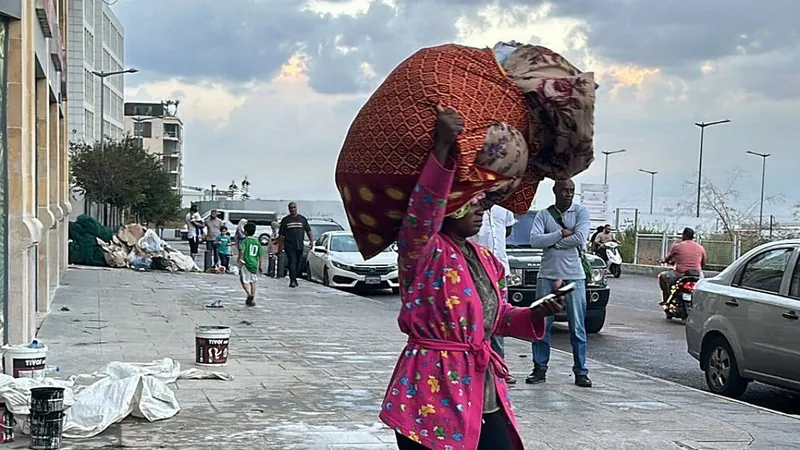
Desperation and Displacement: The Plight of Foreign Workers in Lebanon Amid Conflict
2024-10-04
Introduction
In a heart-wrenching tale of survival, Lakmani, 26, and her mother, Sonia, a 45-year-old Sri Lankan national, reveal the harsh realities faced by many foreign workers amid the escalating violence in Lebanon. Over the past year, they endured air raids in their village of Jouaiya, located about 25 minutes from Tyre, before making the perilous decision to leave their home.
As bombs exploded nearby, we realized we needed to escape, recounted Lakmani, who now finds herself sleeping rough in downtown Beirut alongside her mother. Their journey took a dire turn on September 23, a day marked by historic violence, when Israeli airstrikes claimed the lives of at least 550 people, leading to one of the deadliest days in Lebanon since the end of its civil war in 1990.
Current Situation
Now, both women find solace in a small public garden near Martyrs’ Square, sharing space with a growing number of displaced individuals. United Nations reports indicate that the number of displaced people in Lebanon has surged to approximately one million amid consistent violence.
The Foreign Workforce Crisis
The underestimation of the foreign workforce in Lebanon adds another layer of complexity to the already dire situation. While the International Organization for Migration estimates around 176,500 migrants reside in Lebanon, many experts argue that the actual number may exceed 200,000. Many of these individuals work as cleaners or nannies under the oppressive kafala labor system, which binds them to local employers and often subjects them to abuse.
As the conflict intensifies, these individuals find themselves in precarious circumstances. Activists report numerous cases of domestic workers being stranded in war zones, with some forced to leave their jobs and find refuge elsewhere without essential papers or identification. Others have been abandoned on the streets after being initially evacuated to safer areas.
Activist Perspectives
This situation reflects a broader systemic issue, stated Salma Sakr from the Anti-Racism Movement. These workers are often treated as commodities rather than individuals with rights, discarded when deemed unnecessary.
With embassies slowly responding to the crisis, some countries, like the Philippines, have facilitated repatriation efforts at no cost, while others demand substantial fees that many low-wage workers simply cannot afford.
Personal Accounts and Struggles
I’ve been in Lebanon for 12 years, but right now, there’s no place without war, said Rose, a freelancer sitting in the park with friends. The question of home looms heavy as many face the daunting reality of insurmountable costs for flight tickets or ineffective consular support.
Many workers, particularly women, lament their struggles to find basic necessities, such as shower facilities, amid the ongoing turmoil. It's significantly harder for women than men, noted Mortada, a Sudanese man who shared his perspective on the challenges faced by those without adequate resources.
Conclusion
Lakmani and Sonia continue to search for answers in their temporary refuge. While acknowledging their current plight, Lakmani remained resolute. Our life in Lebanon has been fulfilling; returning to Sri Lanka isn’t an option for us, she emphasized. If we can’t find anything better, we may return to our village.
As the situation deteriorates, it has become clear that a general amnesty for undocumented workers wishing to leave Lebanon is critical not only for their safety but for the broader humanitarian context shaped by this intricate, ongoing conflict.









 Brasil (PT)
Brasil (PT)
 Canada (EN)
Canada (EN)
 Chile (ES)
Chile (ES)
 España (ES)
España (ES)
 France (FR)
France (FR)
 Hong Kong (EN)
Hong Kong (EN)
 Italia (IT)
Italia (IT)
 日本 (JA)
日本 (JA)
 Magyarország (HU)
Magyarország (HU)
 Norge (NO)
Norge (NO)
 Polska (PL)
Polska (PL)
 Schweiz (DE)
Schweiz (DE)
 Singapore (EN)
Singapore (EN)
 Sverige (SV)
Sverige (SV)
 Suomi (FI)
Suomi (FI)
 Türkiye (TR)
Türkiye (TR)